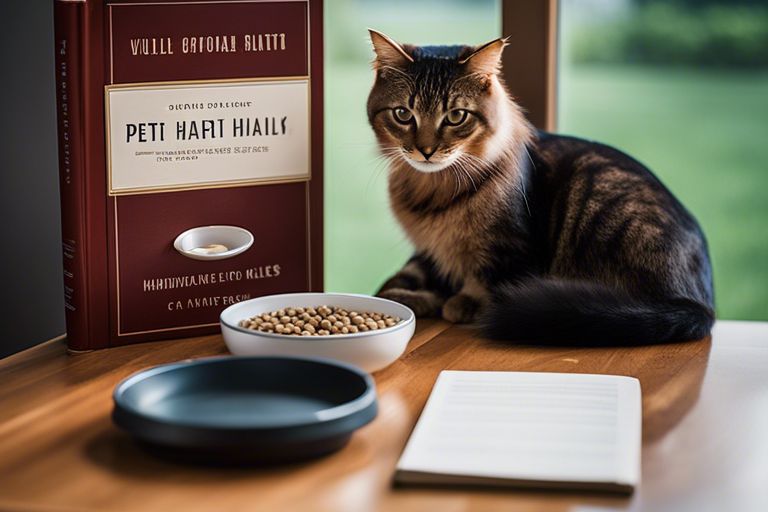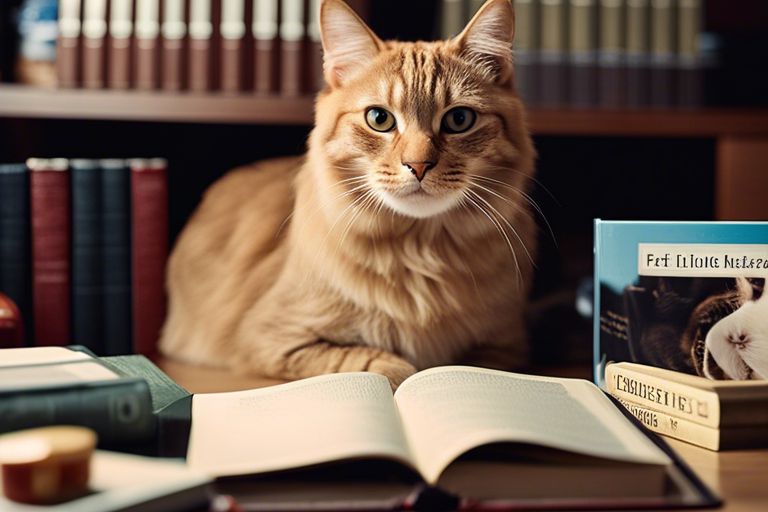Encountering gastrointestinal problems in your feline companion can be worrisome, but it’s important to be informed about the most common issues that can arise. From hairballs to inflammatory bowel disease, there are various gastrointestinal problems that can affect your cat’s health and comfort. Being able to identify the symptoms and understand the potential causes of these issues will empower you to take proactive steps in managing your cat’s digestive health. In this blog post, we will explore the most prevalent gastrointestinal problems in cats, their symptoms, and what you can do to help alleviate your furry friend’s discomfort.
Key Takeaways:
- Common Gastrointestinal Problems: The most frequent gastrointestinal issues in cats include vomiting, diarrhea, constipation, and inflammatory bowel disease. These conditions can cause discomfort and affect the overall health of the cat.
- Dietary Causes: Many gastrointestinal problems in cats can be linked to their diet, such as consuming too much fatty or rich food, eating garbage, or food allergies. It’s important to monitor their diet and provide them with high-quality food.
- Parasitic Infections: Cats can suffer from parasitic infections like roundworms, tapeworms, and hookworms, which can lead to gastrointestinal issues. Regular deworming and parasite prevention are essential for maintaining a healthy digestive system in cats.
- Stress and Anxiety: Cats are sensitive to changes in their environment, and stress or anxiety can manifest as gastrointestinal problems. Providing a safe and secure environment for cats can help prevent these issues.
- Importance of Veterinary Care: Regular check-ups with a veterinarian are crucial to address any gastrointestinal problems in cats. Early detection and proper treatment can ensure the well-being of the cat and minimize the impact of these issues on their health.
Common Gastrointestinal Disorders
Now, let’s delve into some of the most common gastrointestinal disorders that can affect your feline friend. These issues can range from mild to severe and may require veterinary attention to ensure your cat’s health and well-being.
Hairballs and Their Complications
If you notice your cat excessively grooming or gagging, they may be experiencing hairball issues. When your cat ingests loose fur while grooming, it can form hairballs in their stomach or intestines. While occasional hairballs are normal, frequent and severe hairball complications can lead to vomiting, lack of appetite, or even intestinal blockages. To help prevent hairball issues, you can groom your cat regularly to remove loose fur, or offer specialized cat food designed to reduce hairball formation.
Inflammatory Bowel Disease (IBD) in Cats
Inflammatory Bowel Disease (IBD) in cats is a chronic condition that affects the gastrointestinal tract. This condition can cause symptoms such as chronic vomiting, diarrhea, and weight loss. IBD occurs when your cat’s immune system attacks the lining of the digestive tract, leading to inflammation and digestive issues. If your cat is exhibiting persistent gastrointestinal symptoms, it’s crucial to consult with your veterinarian for a proper diagnosis and treatment plan. Your vet may recommend dietary changes, medication, or other management strategies to help manage IBD and improve your cat’s quality of life.
Parasitic Infections
Even though you may not be able to see them, parasites such as worms and protozoa can wreak havoc on your cat’s gastrointestinal system. It’s important to be aware of the common parasitic infections that can affect your feline friend.
Intestinal Worms and Their Impact
Intestinal worms, such as roundworms, tapeworms, and hookworms, are a common health concern for cats. These parasites can cause a range of gastrointestinal problems, including diarrhea, vomiting, weight loss, and anemia. In severe cases, intestinal worms can even lead to intestinal blockages or other serious complications. Regular deworming and preventive measures are essential to keep your cat healthy and free from these potentially dangerous parasites.
Protozoal Infections: Giardiasis and Coccidiosis
Protozoal infections, such as giardiasis and coccidiosis, are another common cause of gastrointestinal issues in cats. These microscopic parasites can lead to symptoms like diarrhea, dehydration, and weight loss. Without proper treatment, protozoal infections can have a negative impact on your cat’s overall health. It’s important to consult with your veterinarian for accurate diagnosis and appropriate treatment if you suspect that your cat may be suffering from a protozoal infection.
Dietary Influences and Food Intolerances
Keep an eye on what you’re feeding your cat, as diet plays a crucial role in your cat’s gastrointestinal health. The wrong diet can lead to a host of digestive issues, while the right diet can help prevent them. Let’s take a closer look at how dietary influences and food intolerances can affect your cat’s digestive system.
The Role of Diet in Gastrointestinal Health
Your cat’s diet plays a critical role in maintaining gastrointestinal health. The type of food you feed your cat can directly influence the function of their digestive system. A diet that is high in low-quality fillers and lacks essential nutrients can lead to digestive problems such as diarrhea, constipation, and vomiting. On the other hand, a well-balanced diet with high-quality ingredients can promote good digestive health and reduce the risk of gastrointestinal issues. Therefore, it’s important to carefully select a diet that meets your cat’s nutritional needs.
Identifying and Managing Food Allergies
Food allergies are a common cause of gastrointestinal problems in cats. If your cat is experiencing chronic diarrhea, vomiting, or other digestive issues, it could be due to a food allergy. Common allergens for cats include beef, dairy, and fish. It’s important to work with your veterinarian to identify any food allergies your cat may have. Once the allergens are identified, you can eliminate them from your cat’s diet and manage their food intolerances accordingly. Keep in mind that some cats may require a specialized diet to manage their food allergies, so consulting with your vet is crucial in these cases.

Diagnosis and Treatment Options
Despite the commonality of gastrointestinal issues in cats, diagnosing and treating these problems can be complex. By understanding the diagnostic tools available and the treatment modalities and supportive care options, you can ensure the best possible outcome for your feline friend.
Diagnostic Tools for Gastrointestinal Issues
When it comes to diagnosing gastrointestinal problems in your cat, your veterinarian may employ a range of diagnostic tools. This can include physical examination, blood work, fecal analysis, abdominal ultrasound, and in some cases, endoscopy or imaging studies. These tools can help identify the root cause of the issue, whether it’s parasites, infections, inflammatory conditions, or something more serious.
Treatment Modalities and Supportive Care
Once your cat’s gastrointestinal problem has been diagnosed, your veterinarian will recommend a suitable treatment plan. This will depend on the specific issue at hand, but may include dietary changes, medications, or even surgery in more severe cases. Additionally, supportive care such as IV fluids, pain management, and nutritional support may be necessary to help your cat recover. It’s important to follow your vet’s recommendations closely and provide the necessary care at home to ensure the best outcome for your cat.
Prevention and Management
After identifying the common gastrointestinal problems in cats, it’s important to focus on prevention and management strategies to keep your feline friend healthy and comfortable.
Preventative Measures for Gastrointestinal Health
One of the most effective ways to prevent gastrointestinal issues in your cat is to provide them with a balanced and nutritious diet. Ensure that you are feeding them high-quality cat food that meets their nutritional needs. Additionally, you can consider incorporating probiotics into their diet to promote a healthy gut flora. It’s also important to keep an eye on their weight and provide regular exercise to prevent obesity, which can contribute to digestive problems. Finally, make sure your cat has access to clean and fresh water at all times to support proper digestion.
Long-term Management of Chronic Conditions
If your cat has been diagnosed with a chronic gastrointestinal condition, such as inflammatory bowel disease or food sensitivities, it’s important to work closely with your veterinarian to develop a long-term management plan. This may involve dietary changes, medication, or other interventions to help control symptoms and improve your cat’s quality of life. Monitoring your cat’s condition closely and making any necessary adjustments to their management plan can help minimize flare-ups and keep them comfortable.
By focusing on preventative measures and actively managing any chronic conditions, you can help your cat maintain a healthy gastrointestinal system and overall well-being. Remember that early intervention and close monitoring are key to addressing any potential issues that may arise. If you have any concerns about your cat’s digestive health, don’t hesitate to seek guidance from your veterinarian. Taking a proactive approach can make a significant difference in your cat’s long-term health.
Conclusion
Upon reflecting on the most common gastrointestinal problems in cats, it is important to be aware of the signs and symptoms that may indicate a potential issue with your feline friend’s digestive health. From hairballs and vomiting to diarrhea and constipation, it is crucial to monitor your cat’s eating habits and behavior to detect any abnormalities. In some cases, dietary changes or medication may be necessary to address these problems, so consulting with your veterinarian is essential. By staying informed and proactive, you can help ensure the overall well-being of your beloved pet and address any gastrointestinal issues that may arise.
FAQ
Q: What are the most common gastrointestinal problems in cats?
A: The most common gastrointestinal problems in cats include vomiting, diarrhea, constipation, and inflammatory bowel disease.
Q: How can I tell if my cat is experiencing gastrointestinal problems?
A: Some signs that your cat may be experiencing gastrointestinal problems include vomiting, diarrhea, changes in appetite, lethargy, and weight loss. If you notice any of these symptoms, it’s important to take your cat to a veterinarian for evaluation.
Q: What can cause gastrointestinal problems in cats?
A: Gastrointestinal problems in cats can be caused by a variety of factors, including dietary indiscretion, infections, parasites, food allergies, pancreatitis, and underlying medical conditions such as kidney disease or hyperthyroidism. It’s important to work with your veterinarian to determine the underlying cause of your cat’s gastrointestinal problems.

Jayley, a devoted cat enthusiast, also writer for other cat blog as well. She aims to dedicated to providing comprehensive information, insights, and advice on everything you’d ever want to know about our whiskered companions.
